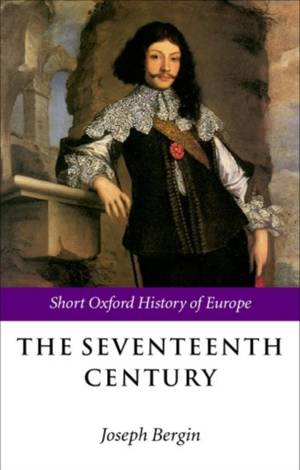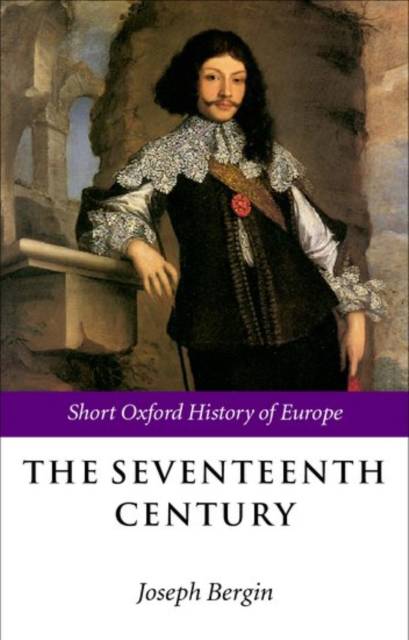
- Afhalen na 1 uur in een winkel met voorraad
- Gratis thuislevering in België vanaf € 30
- Ruim aanbod met 7 miljoen producten
- Afhalen na 1 uur in een winkel met voorraad
- Gratis thuislevering in België vanaf € 30
- Ruim aanbod met 7 miljoen producten
Zoeken
€ 195,45
+ 390 punten
Omschrijving
The complete Short Oxford History of Europe provides a concise, readable, and authoritative point of entry for the history of Europe from the Ancient Greeks to the present day in eleven volumes. In each chapter a leading expert offers focused and penetrating insights into the major themes and influences of the period.
Lying between the two great "peaks" of European history, the Reformation and the Enlightenment in the centuries before and after, the seventeenth century seems not to have a popular identity itself. And yet, as Professor Bergin points on in the Introduction, it is the very proliferation of major events, crises and processes throughout Eruope that has made this transitional age so difficult to label.
In this book, the seventeenth century is fully explored by Professor Bergin and six major authors as they address, in turn, economy, society, politics, war, international relations, science, thought and culture ('The Age of Curiosity'), and Europe in the wider world. In a set of chapters covering and contrasting the European experience across the century, both the reader and the student are offered a rich, lively, and provocative introduction to the period, and a superbly authoritative context for more detailed work.
Lying between the two great "peaks" of European history, the Reformation and the Enlightenment in the centuries before and after, the seventeenth century seems not to have a popular identity itself. And yet, as Professor Bergin points on in the Introduction, it is the very proliferation of major events, crises and processes throughout Eruope that has made this transitional age so difficult to label.
In this book, the seventeenth century is fully explored by Professor Bergin and six major authors as they address, in turn, economy, society, politics, war, international relations, science, thought and culture ('The Age of Curiosity'), and Europe in the wider world. In a set of chapters covering and contrasting the European experience across the century, both the reader and the student are offered a rich, lively, and provocative introduction to the period, and a superbly authoritative context for more detailed work.
Specificaties
Betrokkenen
- Uitgeverij:
Inhoud
- Aantal bladzijden:
- 280
- Taal:
- Engels
- Reeks:
Eigenschappen
- Productcode (EAN):
- 9780198731672
- Verschijningsdatum:
- 18/01/2001
- Uitvoering:
- Paperback
- Formaat:
- Trade paperback (VS)
- Afmetingen:
- 140 mm x 216 mm
- Gewicht:
- 358 g

Alleen bij Standaard Boekhandel
+ 390 punten op je klantenkaart van Standaard Boekhandel
Beoordelingen
We publiceren alleen reviews die voldoen aan de voorwaarden voor reviews. Bekijk onze voorwaarden voor reviews.







